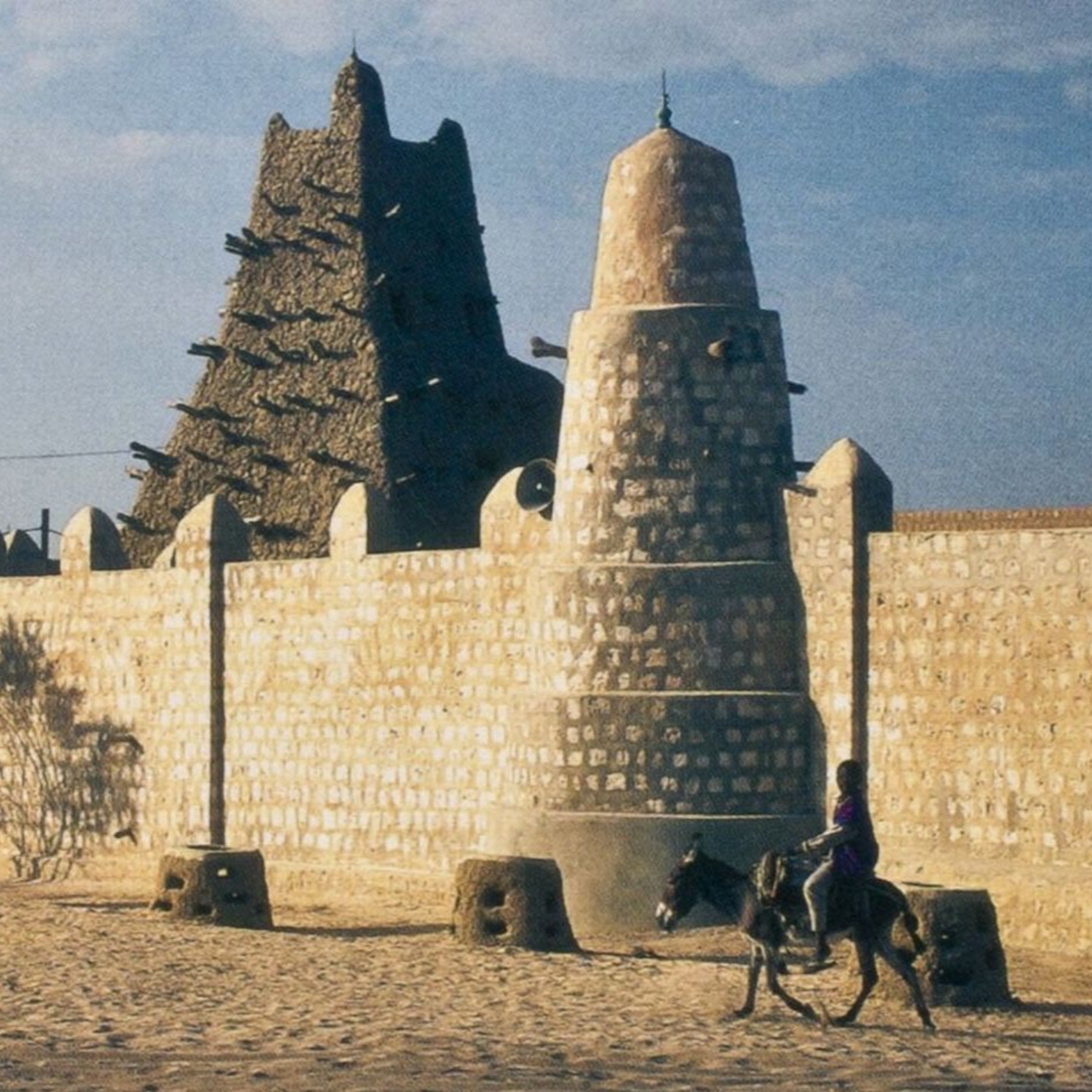
E329 | In this interview, we explore the early history of Islam in West Africa with Professor Ousmane Kane, who has mapped out the networks of Islamic learning in the region. We discuss intellectual history, the curricula of madrasas and a day in the life of a 16th-century student in Sankore. We then turn to the role of language in West African Muslim intellectual production, and the effects of colonialism on education, broadly. West African Islam is neglected by both Islamic Studies and African studies, despite its rich history, from the first centuries of Islam to the present. We end with a discussion of how these disciplines draw boundaries that have thus far discouraged many from looking beyond material exchange in Timbuktu to the broader study of Islamic intellectual history in West Africa.
More at: http://www.ottomanhistorypodcast.com/2017/08/beyond-timbuktu.html
Ousmane Oumar Kane holds the Prince Alwaleed Bin Talal Chair on Contemporary Islamic Religion and Society at the Harvard Divinity School and the Department of Near Eastern Languages and Civilization at Harvard University. Kane studies the history of Islamic religious institutions and organizations, and he is engaged in documenting the intellectual history of Islam in Africa. Kane has also focused on the phenomenon of Muslim globalization.
Shireen Hamza is a doctoral student in the History of Science department at Harvard University. Her research focuses broadly on the history of science and medicine in the Islamicate Middle Ages, and more specifically, in medieval South Asia.
Abdul Latif is an MTS student at Harvard Divinity School focusing on Islamic Studies.
CREDITS
Episode No. 329
Release Date: 21 August 2017
Recording Location: Harvard Divinity School
Audio editing by Shireen Hamza
Music: Harmandali - Recep Efendi, Cemal Efendi
Images and bibliography courtesy of Shireen Hamza at http://www.ottomanhistorypodcast.com/2017/08/beyond-timbuktu.html
view more
More Episodes
Ottoman Passports | İlkay Yılmaz
 2024-09-05
2024-09-05
 2024-09-05
2024-09-05
An Ottoman Imam in Brazil | Ali Kulez
 2024-04-11
2024-04-11
 2024-04-11
2024-04-11
Media of the Masses in Modern Egypt
 2023-12-04
2023-12-04
 2023-12-04
2023-12-04
Nasser, Nubia, and the Stories of a People
 2023-12-04
2023-12-04
 2023-12-04
2023-12-04
012345678910111213141516171819
Create your
podcast in
minutes
- Full-featured podcast site
- Unlimited storage and bandwidth
- Comprehensive podcast stats
- Distribute to Apple Podcasts, Spotify, and more
- Make money with your podcast
It is Free
- Privacy Policy
- Cookie Policy
- Terms of Use
- Consent Preferences
- Copyright © 2015-2024 Podbean.com




